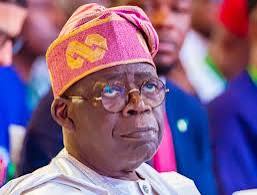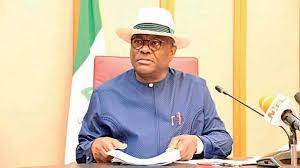Abdullahi M. Gulloma
Though it took a long time to come, the President Muhammadu Buhari-led administration has finally unveiled its economic recovery plan tagged: Economic Recovery and Growth Plan (ERGP) 2017-2020.
Unveiling the plan, this week, President Muhammadu Buhari said that to ensure success of the plan, the federal government would implement it with the same strength, vigour and commitment it has deployed in its fight against corruption, terrorism and militancy in the country.
The President said that government intends to make the country a producing nation. “The Economic Recovery and Growth Plan brings together all our sectoral plans for agriculture and food security, energy and transport infrastructure, industrialisation and social investments together in a single document,” the president said.
“It builds on the Strategic Implementation Plan and sets out an ambitious roadmap to return the economy to growth; and to achieve a 7% growth rate by 2020. Our aim, simply put, is to optimise local content and empower local businesses. We seek not just to take the Nigerian economy out of recession but to place it on a path of sustained, inclusive and diversified growth. We are determined to change Nigeria from an import dependent country to a producing nation. We must become: A nation where we grow what we eat and consume what we produce.We must strive to have a strong Naira and productive economy.
“This administration’s remains committed to delivering on the three key areas that we promised – That is improving security, tackling corruption and revitalising the economy. Security in the North East, and other parts of Nigeria, is significantly better today than when we came in. With regards to our fight against corruption, as you all know, our law enforcement agencies are prosecuting very many cases of corruption. Our successes in these two areas are clear for all to see.
“I want to assure all Nigerians that we are approaching the solution to our economic challenges with the same will and commitment, we have demonstrated in the fight against corruption and in the fight against terrorism and militancy. I will apply same vigour against corruption to revamp economy,” he said.
Consequently, the President has approved establishment of a Special Delivery Unit in the Presidency to monitor the ERGP’s implementation and remove all bottlenecks capable of underming success of the programme. The ERGP, the President said, is a programme designed to succeed, at all costs, and a plan “that will be implemented with vigour, with focus, and with success.”
Strategically, however, the President said successful implementation of the plan largely depends on the support it gets from the states governors and other critical stakeholders. In this regard, it’s, therefore, essential for all stakeholders not to brand the plan as Buhari’s, but a Nigerian plan, which we all must buy into and take its ownership.
Of course, making the Nigerian economy robust and productive is an achievable target if the economic plan is carefully implemented and measures put in place to ensure its success. Crucially, too, it is essential for the present administration to note that the country’s challenges have largely to do with implementation of policies and programmes, rather than their initiation and, in doing so, make its recovery plan simple to implement.
For example, agriculturally, even if we do not produce for export, such production would boost our GDP and if the oil sector improves, other sectors linked to it will also do same while the rehabilitation of roads is a step in the right direction. Putting the economy on a recovery path is a possibility, as it isn’t a rocket science.
Though these are growth indicators, there is need to drive a structural economic transformation with an emphasis on improving both public and private sector efficiency. This should be aimed at increasing national productivity and achieving sustainable diversification of production, to significantly grow the economy and achieve maximum welfare for the citizens, beginning with food and energy security.
Nigeria needs a plan that will boost labour productivity, get the youth engaged and ensure economic sustainability.
Yet, other than the shortness of time that the ERGP sets out to realise its goals, some challenges facing the latest economic plan is whether the objectives and policies it seeks to realise are realistic or ambitious, whether critical stakeholders, especially states controlled by parties other than the President’s own, or it should be politicised and discarded like other laudable projects before it.
Thankfully, in his remarks, the Governor of Zamfara state and Chairman of the Nigeria Governors Forum (NGF), Alhaji Abdulazeez Yari, said that the governors “will take ownership and ensure the implementation of the plan at the sub-national level.”



